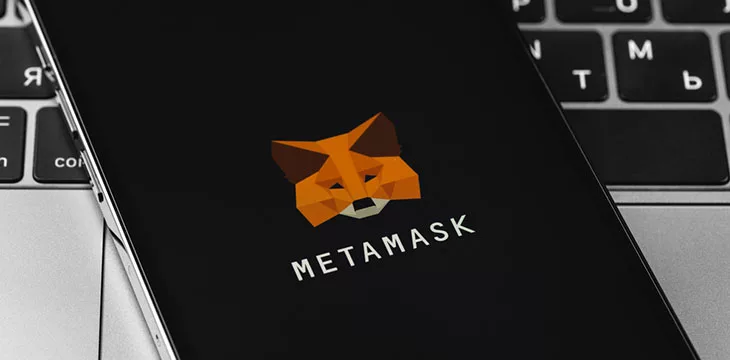|
Getting your Trinity Audio player ready...
|
As the regulatory crackdown picks up pace globally, more and more digital currency and blockchain companies are scrambling to keep one step ahead of regulators.
This week, it was revealed that the number one wallet for trading and swapping tokens on the so-called decentralized exchange Uniswap has the phrase “we reserve the right to withhold your taxes where required” in its terms and conditions.
Metamask, which not too long ago was seen as a way to swap tokens and trade in a way governments could not control since it’s a gateway into a DEX, was caught in the crossfire of a meltdown by the anarchists in the industry who were equally enraged at the so-called hard wallet Ledger last week.
Pay your taxes or Metamask will pay them for you.. pic.twitter.com/cMLDSki3zw
— Whale (@WhaleFUD) May 21, 2023
However, the company that owns MetaMask, ConsenSys, clarified that it did not mean it would withhold taxes on digital currency transactions; it only collects sales taxes on certain paid services.
Despite the misunderstanding, MetaMask and others will collect and report taxes if required
Long ago, Bitcoin inventor Dr. Craig Wright told the entire industry that all applicable financial laws and regulations applied to every company operating in the industry, including anything associated with ‘decentralized’ exchanges and DAOs, which are partnerships under the law.
While Dr. Wright was mocked, ridiculed, and attacked by the anarchists who have, until recently, controlled the narrative in the industry, he is once again being proven right. While MetaMask won’t collect taxes on trades (yet), the wording in the small print suggests they could if required to, and as Binance, Coinbase (NASDAQ: COIN), and others do, you can be sure it will KYC check customers and report to the IRS and other relevant agencies.
Of course, the move to withhold taxes where required didn’t go down well with the usual suspects. Influencers took to Twitter to claim that “decentralization is dying” and lament that this was not how it should be. Some people have truly consumed the Kool-aid and believe that blockchain-based tokens will enable them to stop paying taxes and “self-govern”—whatever that means to them.
Blockchains can help you pay your taxes with more accuracy
Some of the tweets in response to the revelation about MetaMask withholding taxes read, “Bitcoin fixes this.” No, it does not. Bitcoin, far from being a tool for tax evasion and criminality, is the most transparent cash system ever created; it has full traceability and is a terrible choice if you want to break the law. All blockchain-based digital currencies and tokens can be tracked and traced by anyone investigating a crime.
While Bitcoin and other digital currencies can’t help you avoid taxes, they can help you pay them more accurately. This is a big deal and is useful when some complain that the IRS tax forms are too complicated. Since filling them out incorrectly can incur penalties and fines, having a tool like a blockchain to help keep track of everything and pay the right amounts is extremely helpful.
With an increasing number of powerful tools that can analyze the blockchain, using digital currencies to evade taxes is not a good idea. However, having a tool as powerful as the blockchain to track and trace your trades makes it easier than ever to file taxes correctly and stay on the right side of the law.
Eventually, all companies will usher in similar terms and conditions to MetaMask. Profit-seeking enterprises have no desire to pick fights with regulators in countries like the United States or economic blocs like the European Union. ‘Crypto’ was never about lawbreaking, and Bitcoin was designed by a career auditor to make it harder to commit financial fraud.
Accepting this reality is the key to having a prosperous future in the blockchain industry. Those who do not will not be around in a few short years.
CoinGeek Conversations with Dr. Craig Wright: Crypto regulation will make life easier for BSV

 06-30-2025
06-30-2025 





